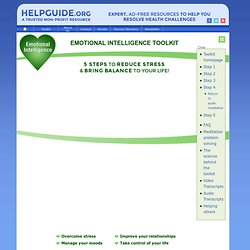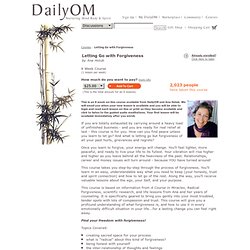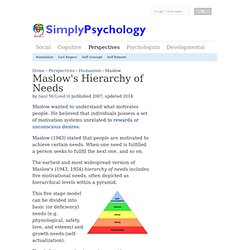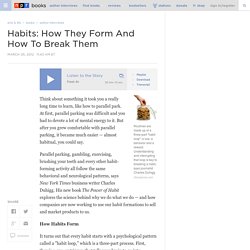

Aging, Disease & Caregiving. Behavioral Issues. Psychology & The Mind. DEPRESSION & ANXIETY. PHOTOS, VIDEOS & AUDIO. Quick Stress Relief: Fast and Effective Ways to Rapidly Reduce Stress. We often hear from people who feel overwhelmed by stress, family, work and relationship problems, health challenges, and painful emotions.

They’ve tried many approaches to help themselves feel better, but they just can’t seem to follow through, or what they’ve done hasn't helped them enough. If this sounds familiar, you know that it’s all too easy to become discouraged when you’re stuck. The problem is not willpower—all the willpower in the world won’t matter if you can’t manage stress or keep your emotions in balance. The good news: you can learn these important emotional skills, no matter your age or the obstacles you face. That’s what this free online program teaches. Skill building, like any learning, takes time and effort. Display Discussion. Letting Go with Forgiveness by Ana Holub. Courses : Letting Go with Forgiveness 8 Week Course(1 lesson per week) How much do you want to pay?

More info This is an 8 week on-line course available from DailyOM and Ana Holub. We will email you when your new lesson is available and you will be able to login and read each lesson on-line or print as they become available and click to listen to the guided audio meditations. If you are totally exhausted by carrying around a heavy load of unfinished business - and you are ready for real relief at last - this course is for you.
Once you learn to forgive, your energy will change. This course takes you step-by-step through the process of forgiveness. Relationship Advice, Dating Tips, Parenting Advice and More! Live Oprah's Lifeclass is streaming live now!

Watch Today at Oprah Live Stream Remind Me Loading... Are You Looking For A Relationship To Complete Yourself? (Why Singlehood is Not a Disease) By Celes on Feb 13, 2009 | ShareThis Email This Post “To say ‘I love you’ one must know first how to say the ‘I’.”- Ayn Rand (in The Fountainhead)“You do not need to be loved, not at the cost of yourself.

The single relationship that is truly central and crucial in a life is the relationship to the self.” – Jo Courdert Love. Soulmate. There are several topics in life which attract a lot of desperation. I know it because I’m single, and I have a lot of single friends. Singlehood = Incomplete? Somehow, the mainstream society seems to be hovering at the belief that we are only complete when we have found our life partner – our soulmate. Personally as a girl, I’m a true blue romantic at heart. But the society seems to have portrayed singlehood as some sort of a disease, rather than a perfectly fine state in itself. Maslow's Hierarchy of Needs. Maslow wanted to understand what motivates people.

He believed that individuals possess a set of motivation systems unrelated to rewards or unconscious desires. Maslow (1943) stated that people are motivated to achieve certain needs. When one need is fulfilled a person seeks to fullfil the next one, and so on. The earliest and most widespread version of Maslow's (1943, 1954) hierarchy of needs includes five motivational needs, often depicted as hierarchical levels within a pyramid.
This five stage model can be divided into basic (or deficiency) needs (e.g. physiological, safety, love, and esteem) and growth needs (self-actualization). The Talk. School is beginning.

Many of you have written to ask me what our family “Back to School” traditions are. If I haven’t responded, it’s because I stared at those questions and thought: CRAP. I’m supposed to have Back to School traditions??? If any, I suppose our traditions are getting crazy excited (Craig and I, not the kids), cursing through Target on the hunt for specific brands of scissors, and MAKING LUNCHES again. Why is making lunches SO hard? Also, this: The Talk. Habits: How They Form And How To Break Them. Routines are made up of a three-part "habit loop": a cue, a behavior and a reward.

Understanding and interrupting that loop is key to breaking a habit, says journalist Charles Duhigg. iStockphoto.com hide caption itoggle caption iStockphoto.com Think about something it took you a really long time to learn, like how to parallel park. At first, parallel parking was difficult and you had to devote a lot of mental energy to it. Parallel parking, gambling, exercising, brushing your teeth and every other habit-forming activity all follow the same behavioral and neurological patterns, says New York Times business writer Charles Duhigg. How Habits Form It turns out that every habit starts with a psychological pattern called a "habit loop," which is a three-part process. "Then there's the routine, which is the behavior itself," Duhigg tells Fresh Air's Terry Gross. The third step, he says, is the reward: something that your brain likes that helps it remember the "habit loop" in the future.
Psychology Today: Health, Help, Happiness + Find a Therapist. Quick Stress Relief: Fast and Effective Ways to Rapidly Reduce Stress. ADDICTION. DAILY OM.
EMPATHY & COMPASSION. YOUR CAREER & COWORKERS. CHILDREN & PARENTING. ALL ABOUT STRESS. ALL ABOUT LOVE. Relationships.